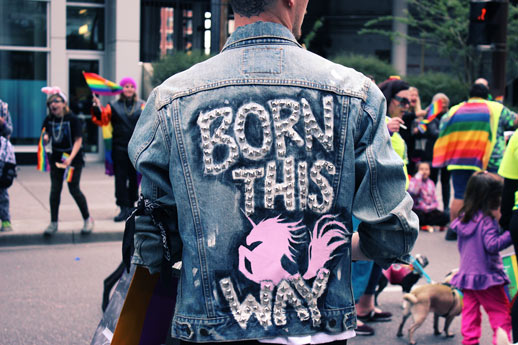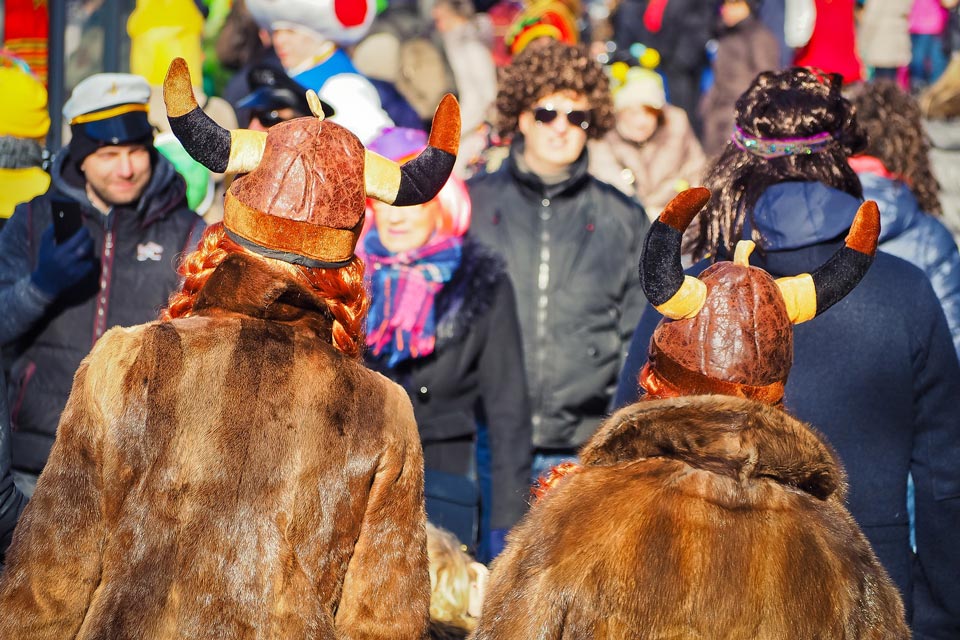
What to do when people use religion as an excuse for homophobia

Religious belief is inherited behaviour natural to each human and inherent in society the world over. It is a psychological crutch in justifying life, our existence and helps us with the feeling of finality and mortality. Most of the major religions preach the afterlife — some offer reincarnation, some eternal bliss in heaven. One of religion’s roles since its first appearance was to give a sense of purpose to believers.
The concept of atheism isn’t something new, but as a movement it has gained more followers and favour in modern times. In some countries nowadays it has become a trend and many atheists having been raised in secular society haven’t questioned their belief in much the same way that those raised in religious cultures don’t truly question their faith. Being an authentic atheist isn’t just saying you don’t believe in any of the deities, but knowing for sure why you don’t and being at peace with the fact that nothing happens once you die.
There are many triggers that push people to question their faith and arrive at atheism. Some get disappointed by their religious leaders, some don’t have religious doctrine handed down through their family, while others research their way into it. In some cases, each one of these plays a part in the conversion process. That was the case with me.
While I was in the middle-school I was a part of the religious class, something like Christian school. There I’ve learned some of the basics of religious rituals, Christian tradition, saints and of course Old and New Testament. Right there I found some holes in the teacher’s stories and I became curious about the flawed logic in the religious myths.
I’ve started asking around at home where I got quite different feedback. As a soldier with turbulent past, my father lost his faith, while my mother still is a hardcore Christian. He tried to explain everything scientifically, while my mom more or less repeated everything I’ve already heard in class. Since I was young at the moment I stopped there, but the grain of disbelief continued to live and grow inside my head.
While I was in high-school and college, I had a chance to read a lot of books covering the subject of religion. The list included novels pointing out lack of logic in religious ways, flawed religious followers, and the loss of basic humanity justified with religion. I read tons of history books explaining concepts of each major religion, how they changed through time, similarities between them, and their mutual relationship. Also, I had access to science-based research disproving religious beliefs.
No matter what I read the central essence of each religious concept was morality. The message is clear - If you live a good life, follow the rules and guidelines provided by the holy book, you’ll be rewarded once you’re gone. The only religion that was without a deity in its centre but still carried the same message was Buddhism. That’s when I first started wondering: Why do you have to believe in God in order to be a good human being? Being kind and just should be a basic human instinct, right?
That’s when it hit me, I don’t need a church, mask or a temple in order to be a moral person. Also, that’s when I realised that it was easier for humans to understand and follow moral rules if they were written by God. If you believe morality is fixed and set by an omnipotent power, you don’t have to question or doubt those morals. But this seems like something of a cop out. Let’s put it this way, if there were no laws at all, what kind of society would we live in? Rules set by the government regulate our social behaviour for the greater good of society, while rules set by religion monitor and moderate the way we behave morally, and morality if you ask 100 people to define morality you’ll get 100 answers.
At that point in life, I was sure I don’t consider myself a part of any organised religious movement. Still, I did have some beliefs left in me. Since I didn’t know what I believed in I defined myself as agnostic. Agnosticism is a state of not knowing for a fact what spiritual truth there may or may not be in the world (literally the word agnostic means “without knowledge”). Living in ignorance truly can be bliss, but in my case, it wasn’t. I had to get to the bottom of things, I needed to know am I going to live not knowing indefinitely.
As the time passed I’ve learned more. My research took me deeper into scientific streams all the way to the books like “The Holy Blood, and The Holy Grail” disproving religion on multiple levels. In this particular publication, each statement was backed by hard evidence and facts proven by multiple sources. At this moment I’ve started leaning towards not believing in anything.
The turning point for me was when I found peace with my own mortality. This truly was a liberating experience, knowing there’s nothing coming afterward. It may seem grim, but it actually isn’t. I’ve decided to live my life the best I can, to achieve my personal goals and stay on the moral path no matter what. I’ve accepted that it’s in human nature to misbehave, but there’s no reason to lock ourselves into a dogmatic circle in order to right our wrongs. Like everyone else I feel a strong desire to be a decent human being, I have empathy for others and want to live an ethical life. Only now I apply logic in forming my own personal morality, rather than following one handed down to me by faith.
Written by Viktor Nagradić
Follow Viktor on twitter @ViktoRaVeN